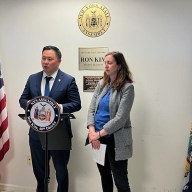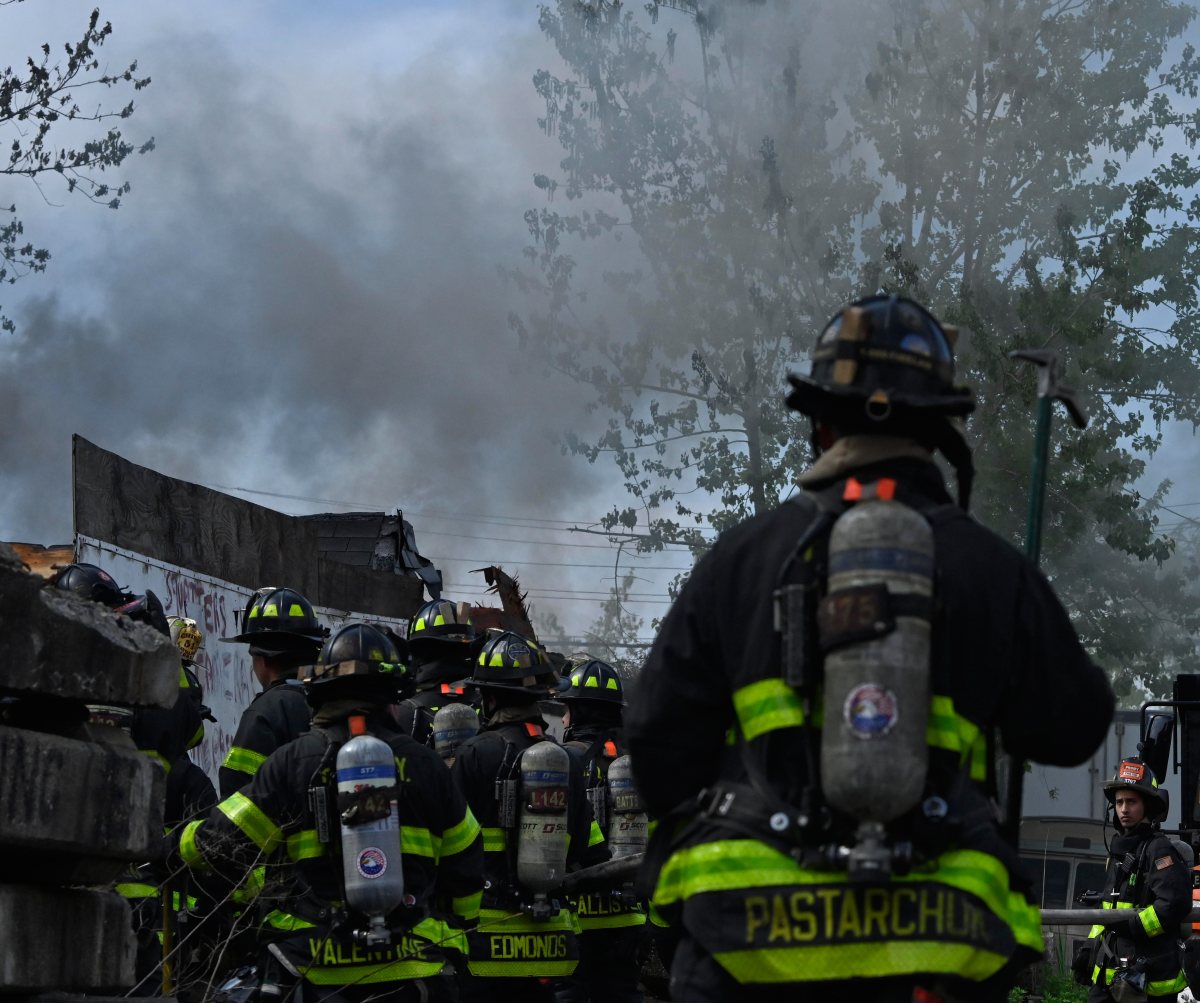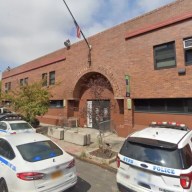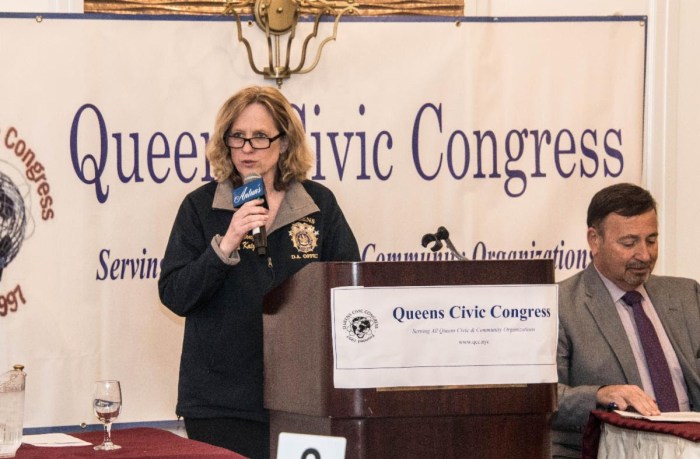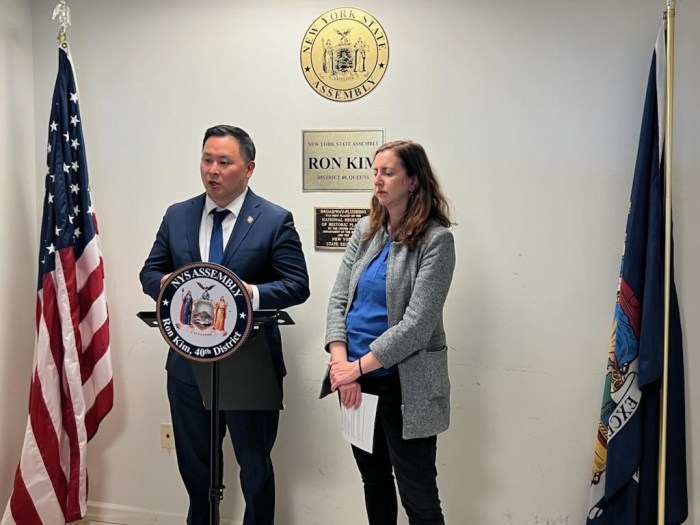By Karen Frantz
Tensions ran high at a town hall meeting in Forest Hills last Thursday, where city Department of Environmental Protection officials offered little hope to people who say rainstorms are flooding their homes and businesses — sometimes with sewage.
The DEP officials had no assurances that a city solution would be at hand anytime soon, if ever.
“We’re desperate for answers,” one man pleaded at the meeting held at the Forest Hills Jewish Center, at 106-06 Queens Blvd. The man demanded of a DEP official, “Is your house getting flooded with fecal matter?”
City Councilwoman Karen Koslowitz (D-Forest Hills) and Community Board 6 Chairman Joseph Hennessy also attended the meeting.
The mood in the packed auditorium quickly soured as Ed Coleman, assistant commissioner for operations at the city Bureau of Water and Sewer Operations at the DEP, explained the complexity of the sewer system, much of which contains combined storm and sanitary sewers.
The pipes in Forest Hills are built to handle 1.5 inches of rainfall per hour, Coleman said, and any storm that produces more can overwhelm the system, causing floods. He added that such storms are projected to occur about once every five years.
Many people shouted angrily from their seats, however, that their homes were getting flooded much more frequently.
“It happened twice this year,” one person yelled, as another woman cried that she was flooded just a few weeks ago.
As residents and business owners lined up in droves to share stories and ask what they can do to prevent flooding, they appeared frustrated with DEP’s response that they should call 311 to report clogged catch basins and install check valves.
Many people recounted experiences calling 311, only to have DEP workers come to perform perfunctory checks on the catch basins without actually clearing them — or not showing up at all. Others questioned the suggestion to use check valves because they worried they would then be responsible for flooding their neighbors’ homes or balked at the installation cost.
Some people demanded the DEP upgrade the sewer system so it could handle more than 1.5 inches of rain an hour, pointing out that storms have gotten more intense in recent years.
Coleman and another DEP official, Mark Lanaghan, replied that due to the way water flows through the system, such changes would require a complete overhaul that would be prohibitively expensive and lengthy.
“To change this from top to bottom in any significant way is dozens of years, billions and billions of dollars,” Lanaghan said.
He added that there would always be a limit to what any system could handle, so even with such a project there would inevitably still be flooding.
“We know you can’t change it, it’s not going to happen this year, it’s not going to happen next year, it’s not going to happen the following year. But start now,” one woman responded. “We’ve probably spent millions cleaning our homes.”
Following the meeting, Koslowitz released a statement, calling the response from the DEP completely inadequate and saying she will address the matter directly with Mayor Michael Bloomberg and the DEP commissioner.
Reach reporter Karen Frantz by e-mail at kfrantz@cnglocal.com or by phone at 718-260-4538.











